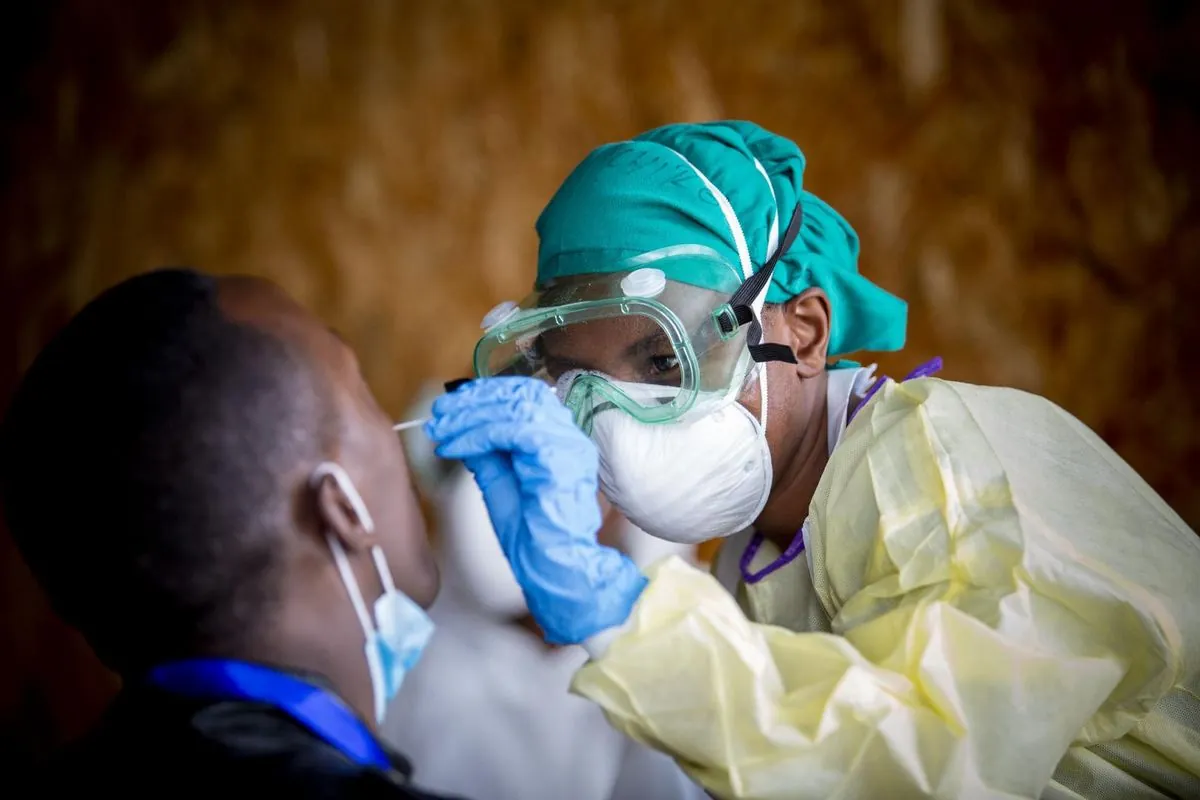Rwanda Faces First Marburg Outbreak: 6 Dead, 26 Cases Reported
Rwanda confronts its inaugural Marburg virus outbreak, with 6 fatalities and 26 cases identified. The WHO is deploying experts and supplies to contain the spread of this Ebola-like disease.

Rwanda is currently grappling with its first-ever outbreak of Marburg virus disease, a severe illness related to Ebola. Health authorities have reported 6 fatalities and 26 cases since the outbreak was confirmed four days ago. This situation marks a significant public health challenge for the East African nation.
Marburg virus, first identified in 1967 in Marburg, Germany, is a filovirus closely related to Ebola. The natural reservoir of this pathogen is the Egyptian fruit bat, which can carry the virus without showing symptoms. The virus has an incubation period of 2-21 days and can persist in survivors' eyes and testes for months after recovery.
The outbreak has spread across six of Rwanda's 30 districts, raising concerns about its potential for wider transmission. Most cases have been reported among health workers in and around Kigali, the capital city. With a population of 1.2 million and a well-connected airport, experts worry about the possibility of international spread.

In response to this crisis, the World Health Organization (WHO) is deploying experts and outbreak response tools to Rwanda. Emergency medical supplies are expected to arrive in Kigali in the coming days. The WHO is also coordinating efforts to strengthen cross-border measures in neighboring countries to prevent further spread.
Marburg virus disease, previously known as Marburg hemorrhagic fever, presents with symptoms including high fever, severe headache, muscle pains, diarrhea, and vomiting. In severe cases, death can occur due to extreme blood loss. The virus has a fatality rate of up to 88%, making it one of the deadliest pathogens known to humans.
Currently, there are no specific treatments or licensed vaccines available for Marburg virus. However, supportive care, including rehydration, is crucial for treating the disease. The WHO has classified Marburg virus as a priority pathogen for research and development, highlighting the urgent need for effective interventions.
This outbreak in Rwanda is the fourth-largest Marburg outbreak ever recorded. The largest outbreak occurred in Angola in 2004-2005. More recently, neighboring Tanzania reported an outbreak in 2023, while Uganda experienced three fatalities from the virus in 2017.
Rwandan authorities are urging the public to remain vigilant, practice good hygiene by washing hands with clean water and soap, and report all suspected cases promptly. These measures are critical in containing the spread of the virus, which can be transmitted through contact with bodily fluids of infected individuals and contaminated objects.
It's important to note that Marburg virus can survive in blood and other bodily fluids outside the body for several days. The virus can be inactivated by UV light, gamma irradiation, and heat treatment, which is crucial information for healthcare workers and laboratory personnel handling potentially infectious materials.
As Rwanda faces this unprecedented health crisis, the international community's support and swift action will be vital in controlling the outbreak and preventing its spread beyond the country's borders.


































